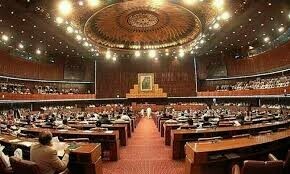LONDON: The US dollar has recently appreciated to its highest level in real terms since the start of 2017 and before that September 2003.
Dollar appreciation weighed on oil prices in 2018 as prices in some non-dollar currencies hit record levels earlier in the year and dampened consumption growth.
Yet there are signs that the dollar’s rise may be coming to an end as trade tensions with China weigh and pressure to raise rates dissipates, lifting prospects for oil prices to recover.
For now, dollar strength has helped hold down US inflation even as unemployment has fallen to its lowest level in decades.
But it has contributed to a worsening trade deficit and cut the dollar value of overseas earnings of US-based companies.
The United States is currently running a mix of expansionary fiscal policy (tax cuts and increased spending on the military) and a less accommodative or contractionary financial policy (rising interest rates).
The consequence is an improvement in the trade-off between employment and inflation (internal balance) but a deterioration in the trade deficit (external balance).
Exchange rate movements have suppressed inflation despite the booming economy but at the cost of declining international competitiveness despite tariffs.
The strong dollar has posed a dilemma for the Federal Reserve: halting interest rates hikes runs the risk of pushing down the real exchange rate and pushing up inflation.
REAGAN REDUX: The Trump administration and the Federal Reserve are to some extent re-running the policy mix of the Reagan administration and the central bank under Paul Volcker in the 1980s.
The Reagan administrations tax cuts and defence build-up coupled with higher interest rates caused the dollar to surge and the trade deficit to soar.
The Reagan administration pressed trading partners to cut exports to the United States (especially cars, steel and electronics) and boost their currencies.
Eventually, the White House pushed the Fed to adopt a more accommodative policy, triggering the departure of the chairman.
It is worth noting the current US Trade Representative Robert Lighthizer was the deputy trade representative in the Reagan administration when it forced Japan to accept “voluntary export restraints” to curb its exports to the United States.
The administration went on to press the other major economies to appreciate their currencies and depreciate the dollar as part of the Plaza Accord in 1985.
The strong dollar of the early 1980s worsened the demand destruction and oversupply of oil in the early 1980s and contributed to the price crisis of 1985 and 1986.
Subsequent dollar depreciation likely helped steady oil prices in the second half of the 1980s, at least it did once Saudi Arabia’s oil minister Ahmed Zaki Yamani was replaced and the kingdom abandoned netback pricing and its volume warfare strategy.
Just as Japan was the target for US policymakers in the 1980s complaining about unfair trading practices, China has become the target in the 2010s.
Published in Dawn, January 6th, 2019













































